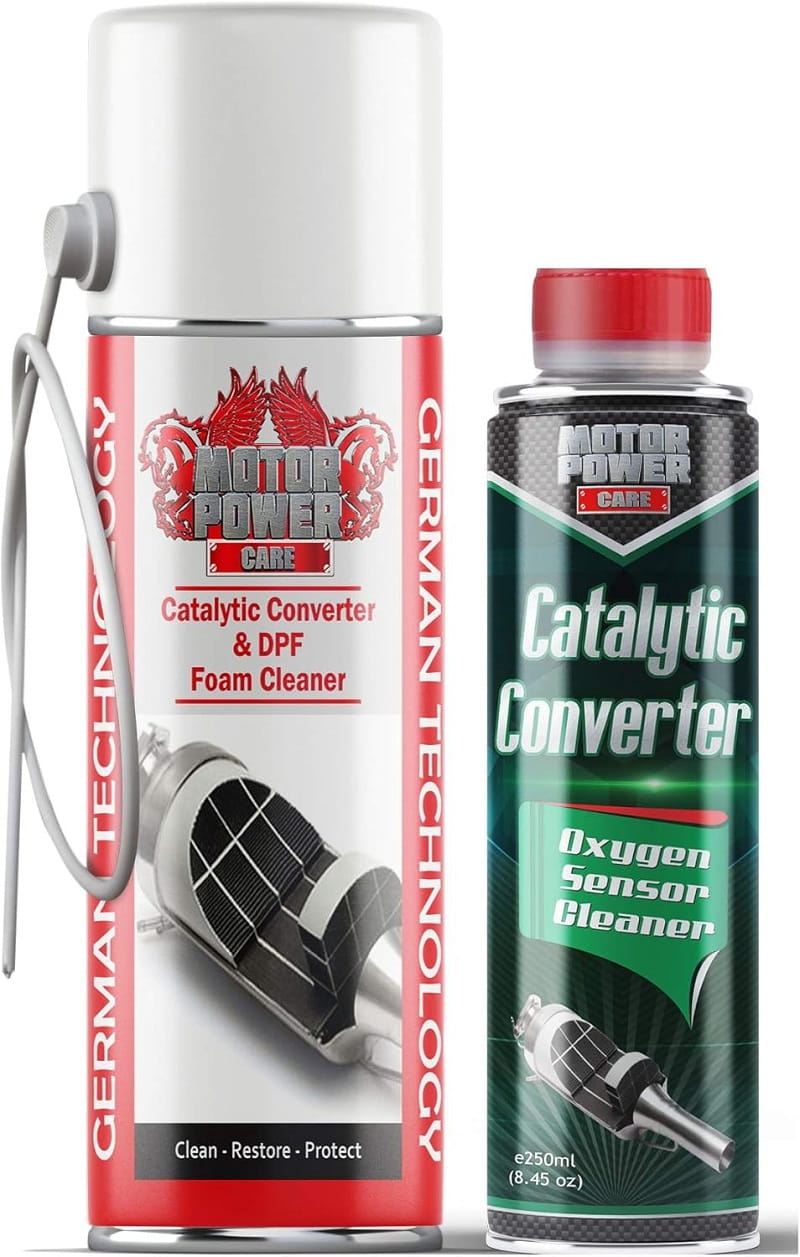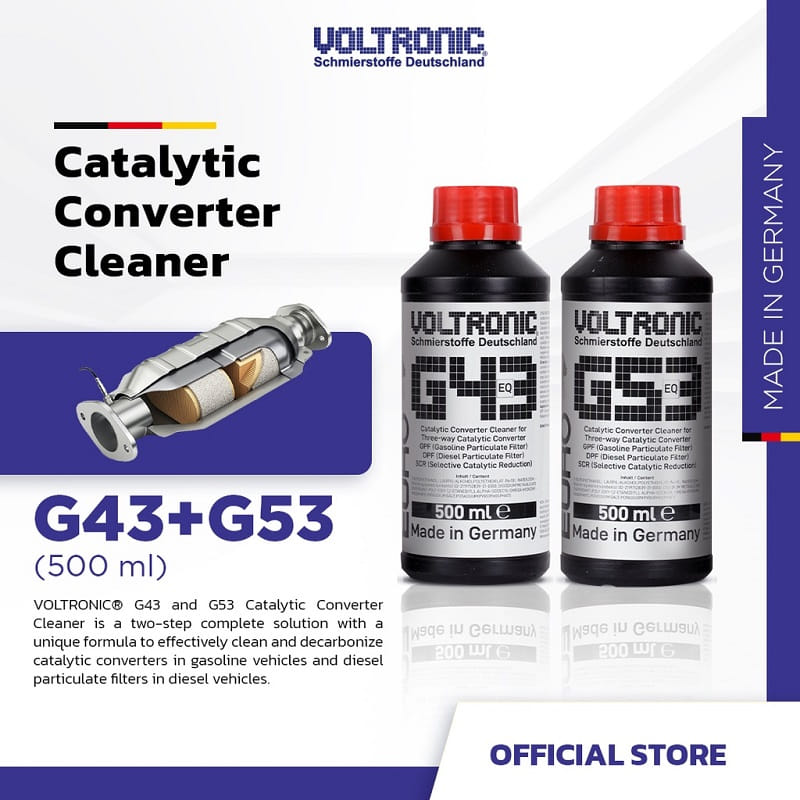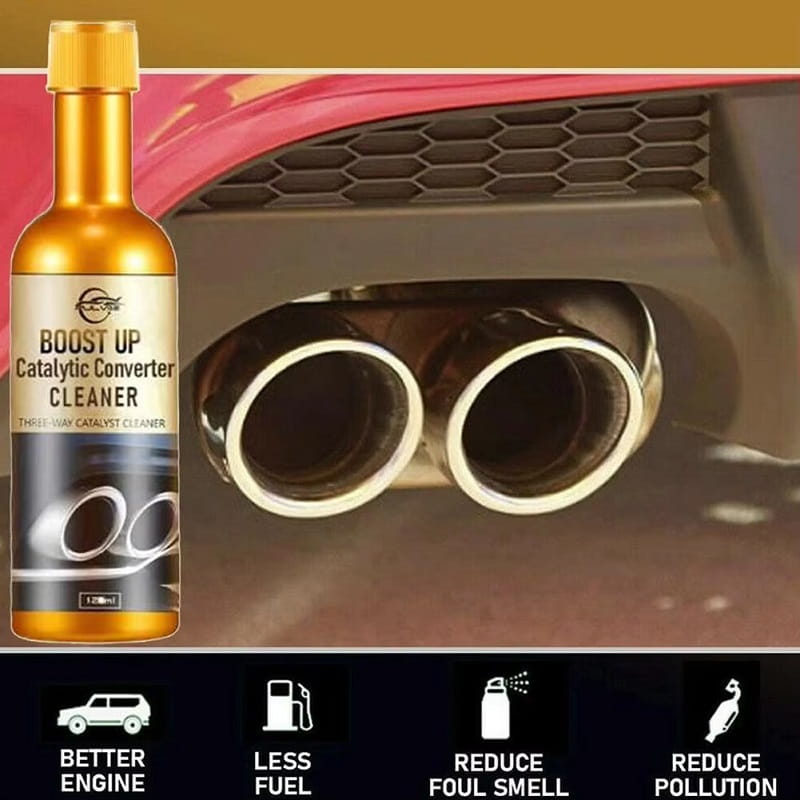This post contains affiliate links. This means I will make a commission at no extra cost to you should you click through and make a purchase [ “As an Amazon Associate, I earn from qualifying purchases.” ]. Read the full disclosure here.
Catalytic Converter Cleaner for Petrol Engines: A Smart Way to Maintain Vehicle Health GuideMechanic.Com The catalytic converter plays a crucial role in reducing your car’s harmful emissions and maintaining engine performance.
However, over time, it can become clogged with carbon buildup and other residues—especially in petrol-powered vehicles.
Fortunately, a catalytic converter cleaner can help restore its functionality without the need for expensive repairs or replacements.
In this article, we’ll explore everything you need to know about catalytic converter cleaners for petrol engines—what they are, how they work, when to use them, and which products are most effective.
See Also: Catalytic Converter Cleaner Walmart
Catalytic Converter Cleaner for Petrol Engines: A Smart Way to Maintain Vehicle Health
What Is a Catalytic Converter?

A catalytic converter is a key component in a car’s exhaust system. It is responsible for converting toxic gases produced during combustion—such as carbon monoxide, hydrocarbons, and nitrogen oxides—into less harmful emissions like carbon dioxide and water vapor. This process is essential for reducing a vehicle’s environmental impact and complying with emission regulations.
The converter contains precious metals like platinum, palladium, and rhodium that trigger chemical reactions to neutralize pollutants.
However, over time, contaminants like carbon deposits, oil residue, and unburned fuel can clog the converter and reduce its efficiency.
Why Do Petrol Engines Need Catalytic Converter Cleaners?
While both diesel and petrol engines benefit from emissions system maintenance, petrol engines are especially susceptible to carbon buildup. Short trips, stop-and-go traffic, low-quality fuel, or a malfunctioning oxygen sensor can all lead to:
- A clogged catalytic converter
- Check engine light warnings (commonly P0420 code)
- Poor fuel economy
- Failed emissions tests
- Decreased engine performance
Instead of replacing the catalytic converter—a process that can cost hundreds or even thousands of dollars—many vehicle owners turn to a catalytic converter cleaner as an affordable and effective alternative.
What Is a Catalytic Converter Cleaner?
A catalytic converter cleaner is a fuel additive specifically designed to clean the catalytic converter and related parts of the engine’s exhaust system. It works by dissolving carbon and soot deposits inside:
- The combustion chamber
- Fuel injectors
- Oxygen sensors
- The catalytic converter itself
These cleaners are typically poured into the petrol tank and activated as the fuel burns during engine operation.
How Do Catalytic Converter Cleaners Work?

Once added to the fuel tank, the cleaner mixes with the petrol and travels through the fuel system as the car runs. As the engine reaches optimal operating temperatures, the chemical agents within the cleaner begin to:
- Dissolve carbon buildup in the exhaust system
- Clean oxygen sensors, which are critical for accurate fuel-air ratio measurements
- Improve fuel combustion, reducing future buildup
- Enhance airflow through the catalytic converter
With regular use, these products can help extend the life of the converter and restore engine efficiency.
Signs You Need a Catalytic Converter Cleaner
If you’re unsure whether your petrol engine needs a catalytic converter cleaner, watch for the following signs:
- Check Engine Light On (especially with code P0420)
- Increased fuel consumption
- Rough idling or stalling
- Sluggish acceleration
- Rotten egg or sulfur smell from the exhaust
- Dark smoke from the tailpipe
- Failed emissions test
If you notice any of these symptoms, using a catalytic converter cleaner could help resolve the issue—especially if it’s related to carbon buildup rather than mechanical failure.
Best Catalytic Converter Cleaners for Petrol Engines
Here are some top-rated products specifically formulated for petrol engines:
1. Cataclean Petrol
Cataclean is one of the most trusted names in catalytic converter maintenance. It’s designed to clean not only the converter but also fuel injectors, oxygen sensors, and the entire exhaust system.
- How to Use: Add to 1/4 tank of petrol and drive for 15+ miles.
- Pros: Proven to reduce emissions and improve performance.
- Cons: More expensive than basic fuel cleaners.
- Price Range: $25–30 per 16oz bottle
2. Liqui Moly Catalytic System Cleaner (Petrol)
This German-made cleaner is effective at breaking down soot and residue inside the exhaust system.
- How to Use: Add to the fuel tank before refueling.
- Pros: High-quality formula; works well in modern engines.
- Cons: Slightly harder to find in some regions.
- Price Range: $15–20
3. STP Catalytic System Cleaner
- A well-known brand that offers a budget-friendly solution for petrol vehicles.
- How to Use: Pour into a nearly empty tank, then refuel.
- Pros: Affordable and widely available.
- Cons: May require multiple treatments for best results.
- Price Range: $10–12
4. Wynn’s Catalytic Converter Cleaner (Petrol)
- Popular in Europe, this cleaner is known for helping cars pass emission tests.
- How to Use: Add directly into the petrol tank and drive normally.
- Pros: Effective for high-mileage vehicles.
- Cons: Works best as preventative maintenance.
- Price Range: $15–18
How to Use Catalytic Converter Cleaner in a Petrol Car

Using the cleaner is generally very simple, but always follow the instructions on the product label. Here’s a general step-by-step guide:
- Ensure low fuel level (usually 1/4 or 1/2 tank)
- Pour the entire bottle of cleaner into the fuel tank
- Drive the vehicle for at least 15–30 minutes, preferably at highway speeds to allow the engine and converter to reach optimal temperatures
- Monitor engine behavior—you may notice smoother acceleration, better fuel economy, or the check engine light turning off after some driving
Will a Cleaner Fix a Damaged Converter?
A catalytic converter cleaner can only help with mild to moderate carbon buildup or minor clogs. It will not repair physical damage such as:
- A cracked or melted converter
- Severe clogging from oil or coolant leaks
- Broken internal honeycomb structures
If the converter is physically damaged, replacement is the only option. However, many drivers have had success clearing error codes like P0420 by using a cleaner, avoiding immediate costly repairs.
How Often Should You Use It?
For optimal maintenance, most manufacturers recommend using a catalytic converter cleaner every:
- 3,000 to 5,000 miles (for regular maintenance)
- Before an emissions test
- After fixing engine issues like misfires or oxygen sensor faults
Regular use helps prevent buildup and keeps your engine and exhaust system running cleanly.
Benefits of Using Catalytic Converter Cleaner in Petrol Engines
✅ Saves money on repairs and emissions testing
✅ Improves fuel economy and engine response
✅ Reduces harmful emissions
✅ Extends catalytic converter lifespan
✅ Easy to use with no tools or mechanical knowledge required
Pro Tips for Maintaining a Clean Catalytic Converter
- Use high-quality petrol to reduce carbon residue
- Drive longer distances occasionally to heat the converter fully
- Fix engine misfires quickly—unburned fuel can damage the converter
- Replace oxygen sensors and spark plugs as needed
- Use a cleaner as part of preventative maintenance
Conclusion
A catalytic converter cleaner for petrol engines is a cost-effective and easy-to-use solution for maintaining your vehicle’s performance and emissions system.
While it’s not a miracle fix for major damage, it can make a noticeable difference when used correctly—and may even help you avoid expensive repairs.
Whether you’re dealing with a check engine light, preparing for an emissions test, or simply keeping up with regular maintenance, using a trusted catalytic converter cleaner is a smart move for any petrol car owner.
- Wynn’s Catalytic Converter Cleaner 325ml - April 17, 2025
- How to Use Catalytic Converter Cleaner - April 16, 2025
- Dura Lube Catalytic Converter Cleaner: Does It Work? - April 15, 2025
